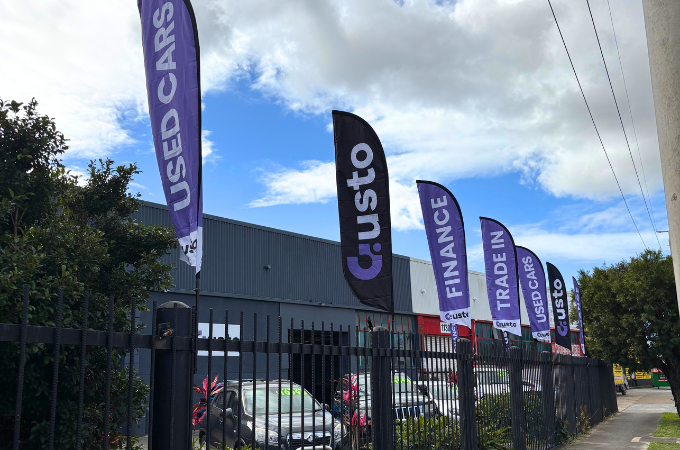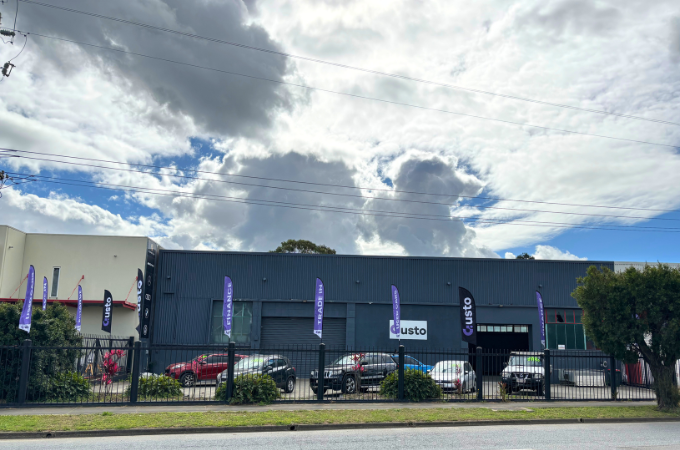If you don’t know much about cars, then buying an older used vehicle can feel like a lottery. A lot can go wrong, but you hope that it doesn’t.
When buying from a licensed dealership, you can at least be comforted that there are built-in consumer protections, such as a statutory warranty and assurances that the vehicle will be unencumbered.
However, a car is still a big purchase, and it is always worthwhile learning all you can about the vehicle prior to signing on the dotted line.
In this article, we will share all the questions you could ask a used car dealership when inspecting a vehicle and going for a test drive.
Vehicle History
Has this car ever been in an accident?
If a vehicle has been involved in a serious accident, then it may be listed on the Written Off Vehicle Register (WOVR).
A dealership is obliged to disclose a WOVR listing when advertising the vehicle, and to any interested buyers.
While repair work can restore the vehicle to perfectly good condition, the price would usually be heavily discounted from the market benchmark.
Can I see the full service history?
A well-documented service log is a sign that the previous owner was responsible and looked after the vehicle.
However, the dealership will have addressed any mechanical issues as part of the requirements to obtain a roadworthy certificate.
So even if log books are not available, you have some reassurance that all outstanding issues have been dealt with if buying through a licensed dealership.
When does the registration expire?
When you buy a used car, it will come with at least three months of registration. In some cases, there could be more time on the existing registration.
This can be a small money saver if you do not need to renew for longer.
Condition of the Vehicle
Has the car undergone a recent mechanical inspection?
Dealerships are required to obtain a roadworthy certificate prior to making a vehicle available for sale.
But you won’t know if this was done last week or six months ago.
So it is worth asking the question, and what work was done to the vehicle as part of the preparation for sale.
Are there any other known issues I should be aware of?
If you are buying an older car, there may be some minor issues that are below the threshold required for a roadworthy certificate but may require attention in the near future.
Asking this directly can uncover small problems that may not be immediately visible. Or you may get an idea of how much life the tyres have left in them before they will require replacing.
Additional information is always helpful when making such a big purchase.
Can I take the car for an independent inspection?
A trustworthy dealership should have no issue with an external mechanic reviewing the car.
Independent inspections help confirm the vehicle’s condition without bias.
What is the current mileage on the vehicle?
Chances are, this is the first thing you checked when you initially found the car.
However, a dealership is obligated to use the odometer reading at the time it was advertised for sale, and it may have changed since then.
The change would rarely be significant, but it is always worth double-checking.

Financing Options
Do you provide in-house finance?
Most dealerships provide access to some kind of finance.
However, there is a huge difference between a business manager who deals with a couple of lenders and a qualified Finance Broker who is a finance expert.
You will get a much higher quality service and access to more lenders through an expert Finance Broker.
Our sister brokerage Gusto Finance is the best in the business and takes care of all the finance for Gusto Auto, and a number of other dealerships all around Australia!
You can also apply directly by clicking below.
What are the interest rates and repayment terms available?
The answer will depend on your credit profile, the amount you are borrowing, and the asset you are looking to finance.
Rates can vary significantly, and I would be wary of anyone who gives you an answer without a preliminary assessment.
They may just be telling you what you want to hear until you are further along in the buying process and emotionally invested.
How many lenders do you have access to?
The dealership is usually not the one providing finance. They are managing the application through the lenders they have partnered with.
You want to be dealing with a qualified finance broker who has access to a large panel of lenders.
This ensures the maximum choice to secure the best rate possible, and maximise your chances of approval.
Warranty and Buyer Protection
What type of warranty comes with this vehicle?
Used cars often come with statutory warranties, but the level of coverage and the vehicles that qualify will vary from state to state.
Ask what’s included so you know where you stand.
What does the statutory warranty actually cover?
Many warranties exclude wear-and-tear items such as tyres, brakes, or batteries.
The dealership will be happy to explain all of this in detail so you understand what is included and what is not.
Are extended warranty options available?
Most dealerships will offer extended warranties that can be purchased as part of the transaction for additional peace of mind.
The cost can vary significantly depending on the inclusions and length of coverage. You should ensure you understand these two elements in detail prior to committing to the coverage.
When buying an older used car the inclusions can give you important protections, and you don’t want any nasty surprises if your encounter a problem.
Pricing and Value
Is the price negotiable?
Dealerships sometimes build room for negotiation into their asking price, but this is dependent on the vehicle itself.
Sometimes the margin for negotiation just isn’t there.
If you come armed with some data on the market pricing for this make and model you may be able to make a case for a better price.
How was the price of this car determined?
Market demand, mileage, age, and condition all influence value.
A transparent dealership should be able to explain its pricing rationale.
Are there any additional fees I should know about?
Purchasing a used car can incur a number of fees in addition to the price of the vehicle itself.
This could include stamp duty and various transfer fees. Some dealerships will include this in the purchase price, and others will add it to the final invoice.
The requirements also vary from state to state. The easiest way to know for sure is to ask the question.
If you have bought using finance, there may also be establishment fees, broker fees, and a PPSR fee to consider.
While this is not coming from the dealership, it is still part of the deal for you personally. So you should have a complete inventory of all associated fees prior to committing.
Before you finalise an agreement, you should get a thorough understanding of the drive-away costs.

Test Drive Questions
Can I take the car on a test drive that includes highway and city driving?
Different conditions reveal different behaviours. A short spin around the block won’t uncover how the car handles at higher speeds or in stop-start traffic.
You’ll want to give the brakes a good workout in some tighter roads, but also get up to a higher speed on a freeway to see if the car starts shaking at anything over 100km/h!
Does the car make any unusual noises?
Strange noises, vibrations, or sluggish acceleration can be red flags while on your test drive.
Asking the dealer up front should provide a point of reference before you set out on the drive.
Dealership Reputation and Policies
Do you offer a cooling-off period?
In some states, buyers are legally entitled to a short cooling-off period. This is yet another rule that will vary depending on where you are located.
For example, all sales from our Brisbane dealership come with a 24-hour cooling-off period. Whereas in Perth there would be no requirement to offer this.
Can I see reviews or references from past buyers?
This may not be a question you need to ask in the digital age. Google reviews, TrustPilot, and word of mouth are all powerful tools to discover more about the experience of past customers.
Reputable dealerships will be proud to showcase testimonials and positive feedback.
Just as important is how they respond to negative reviews.
Trade-In Opportunities
Do you accept trade-ins, and how do you determine trade-in value?
If you’re upgrading your vehicle then a trade-in can reduce your out-of-pocket cost.
A dealership would assess the condition of the car, the KMs on the clock, and compare this to market benchmarks to determine a fair market value.
They also need to be confident they can sell the car, and that they can make a margin in doing so.
So the price will be lower than what you may see on the market. But you can still ask how they arrived at the valuation so you understand all aspects of the calculation.
Extra Perks and Benefits
Do you provide roadside assistance with the purchase?
Some dealerships may include a period of roadside assistance, giving extra security in the early months of ownership.
However, the cost of this service would usually be built into the price. So I would be wary of “free inclusions”.
Are there free servicing or maintenance packages included?
Similar to the above point, some dealerships will offer this as a sweetener but you can be certain that you are paying for it somewhere.

Conclusion
You are unlikely to ask all of these questions when inspecting cars at a dealership. However, there may be a few that you find most relevant to your concerns.
You can also use these as general conversation starters. The more you can get the salesperson talking about the car the better.
It will become evident quickly if they are consistent and honest in their responses, and if you are comfortable dealing with them for such a significant purchase.

